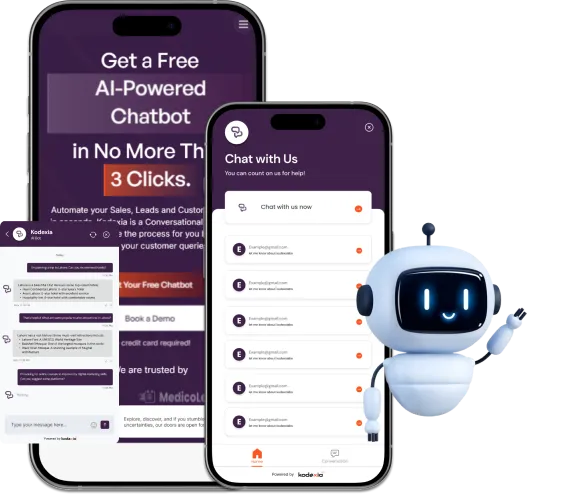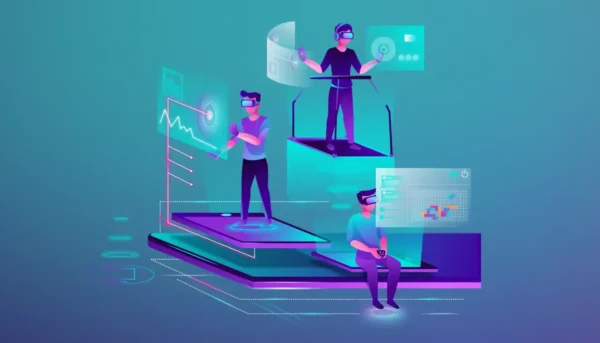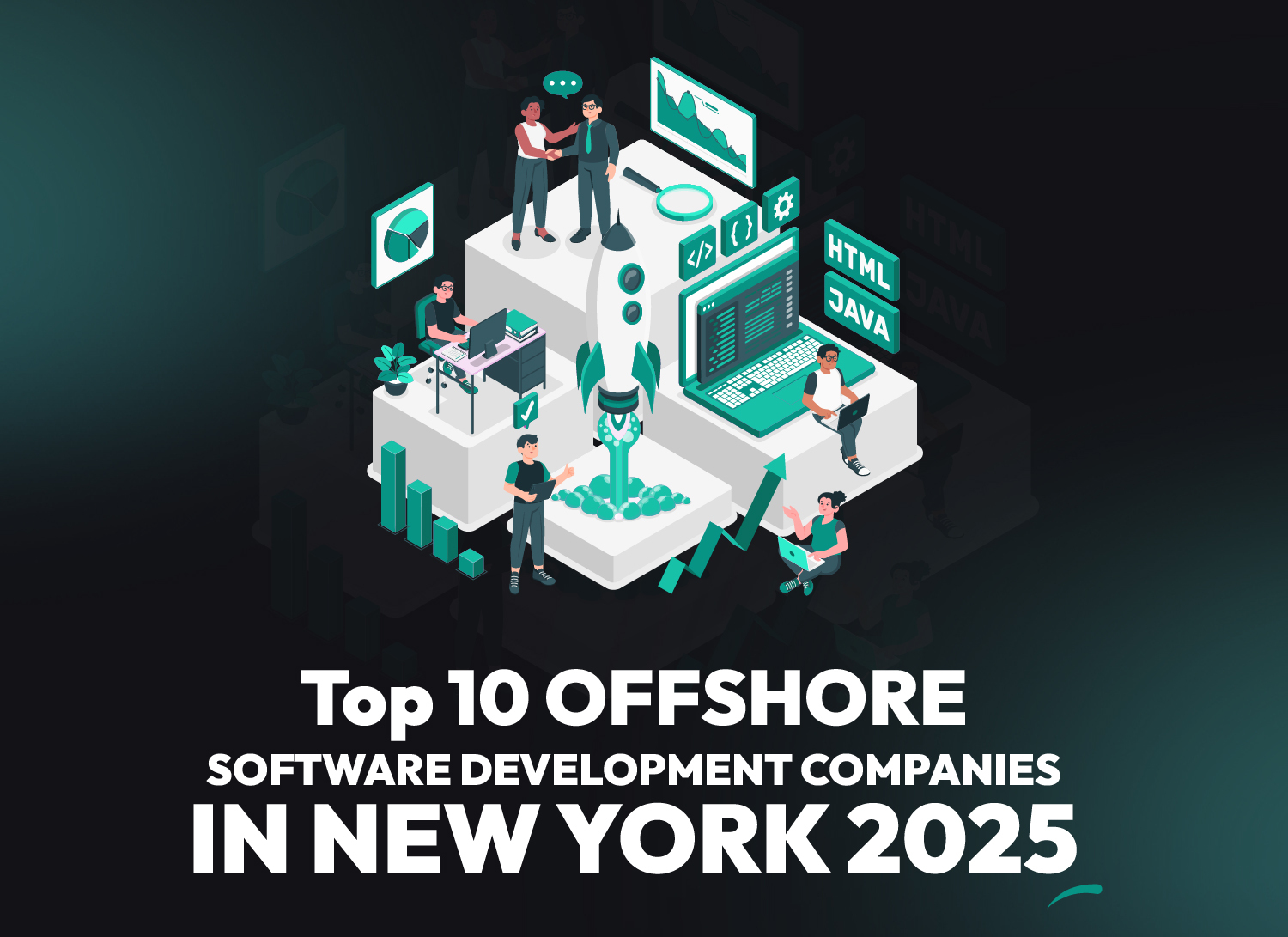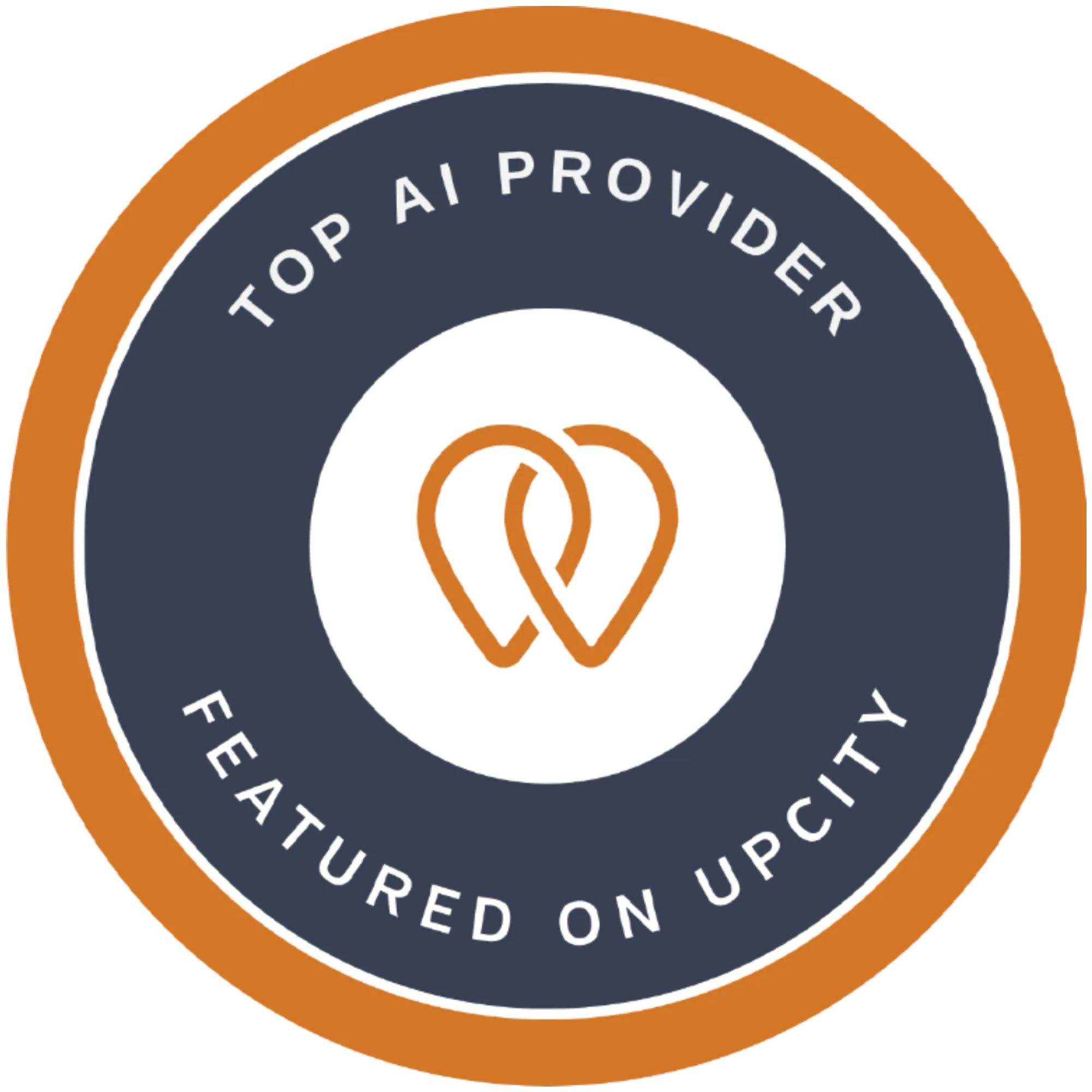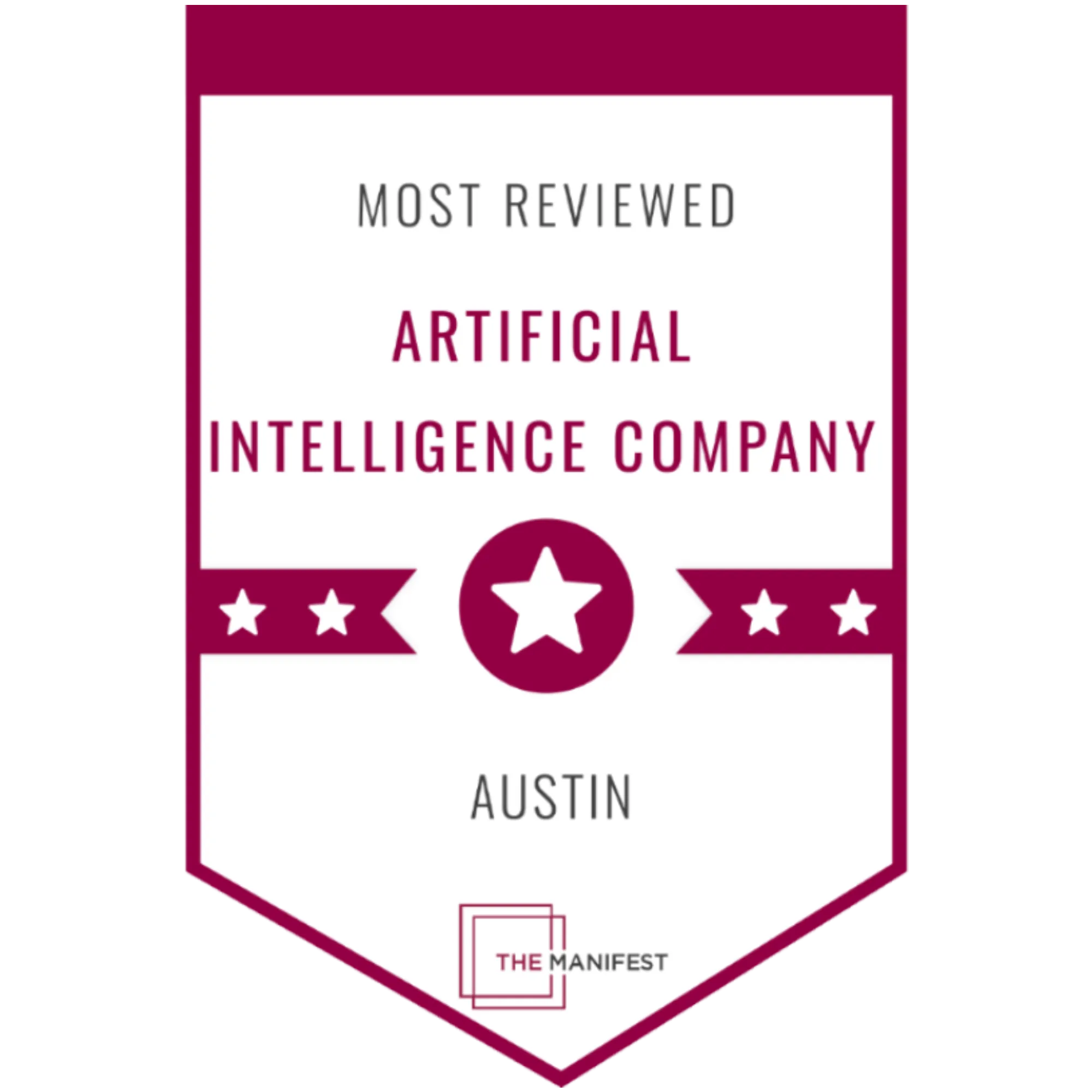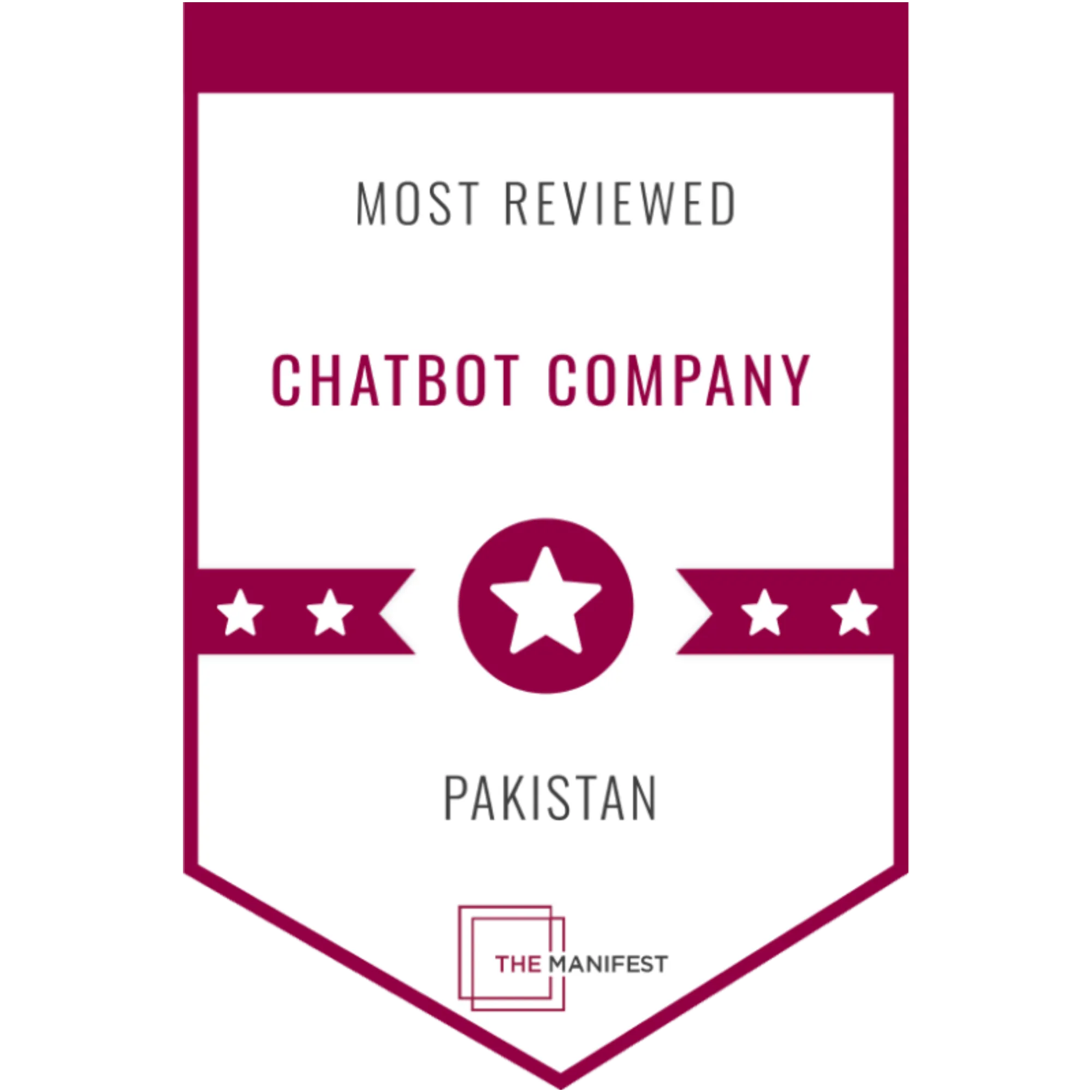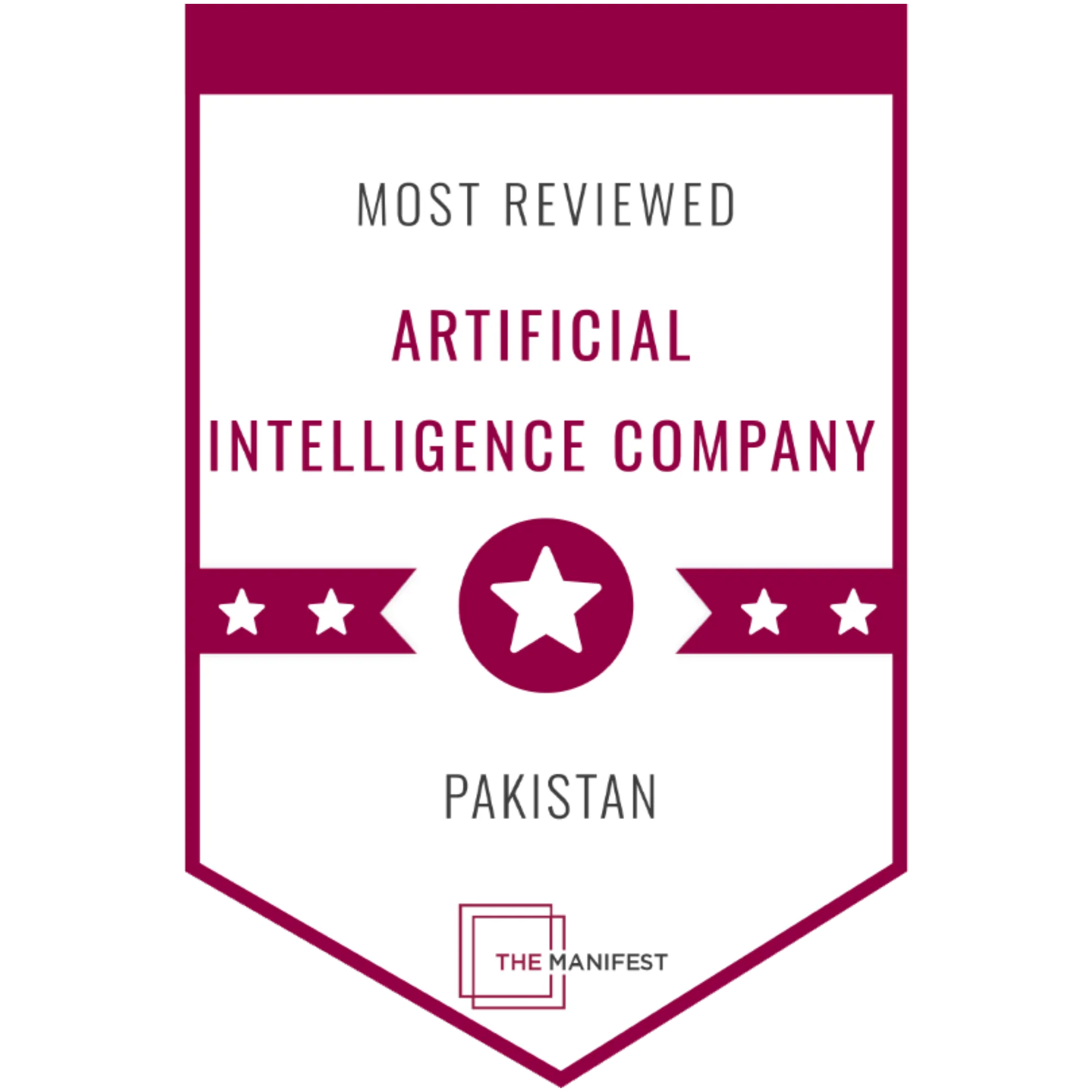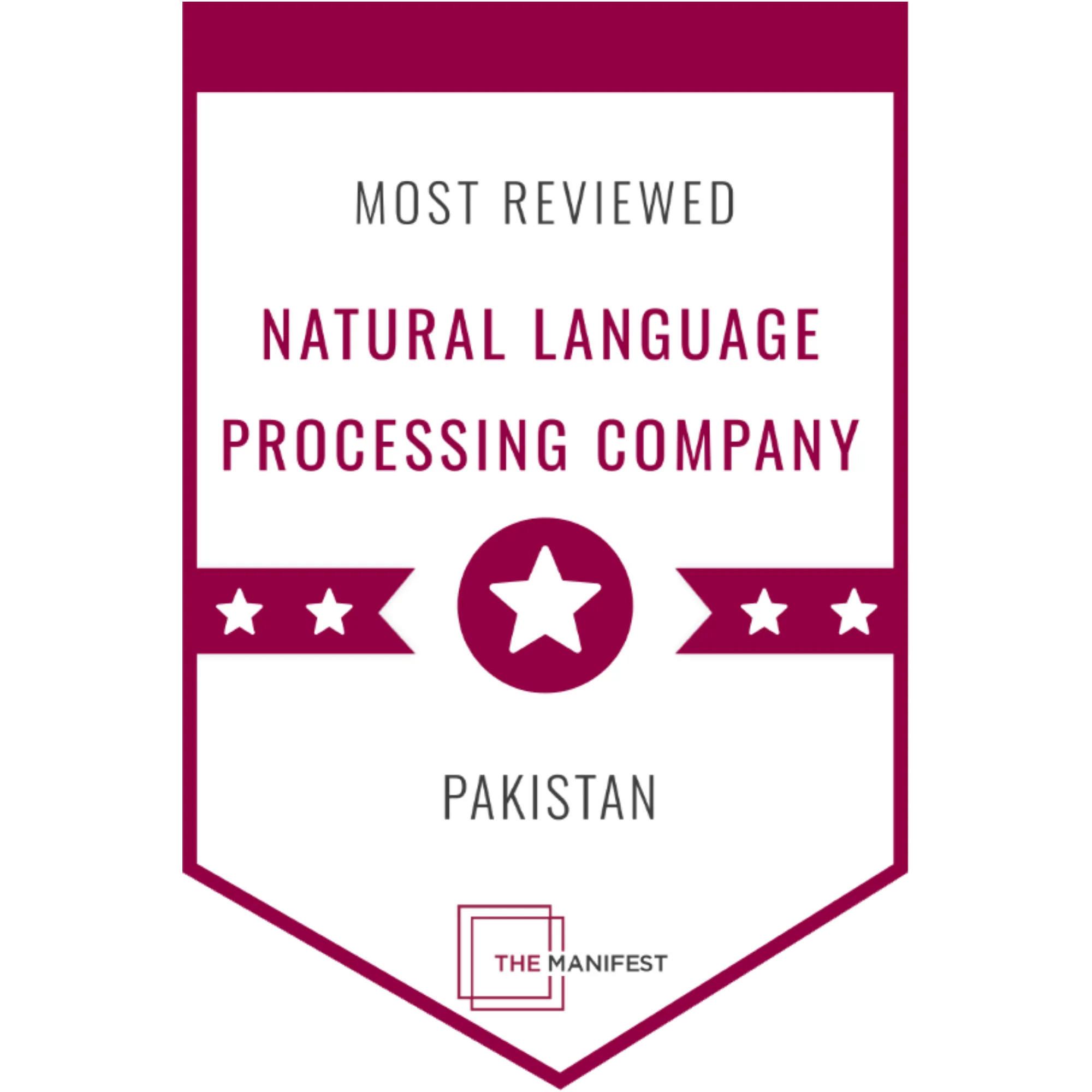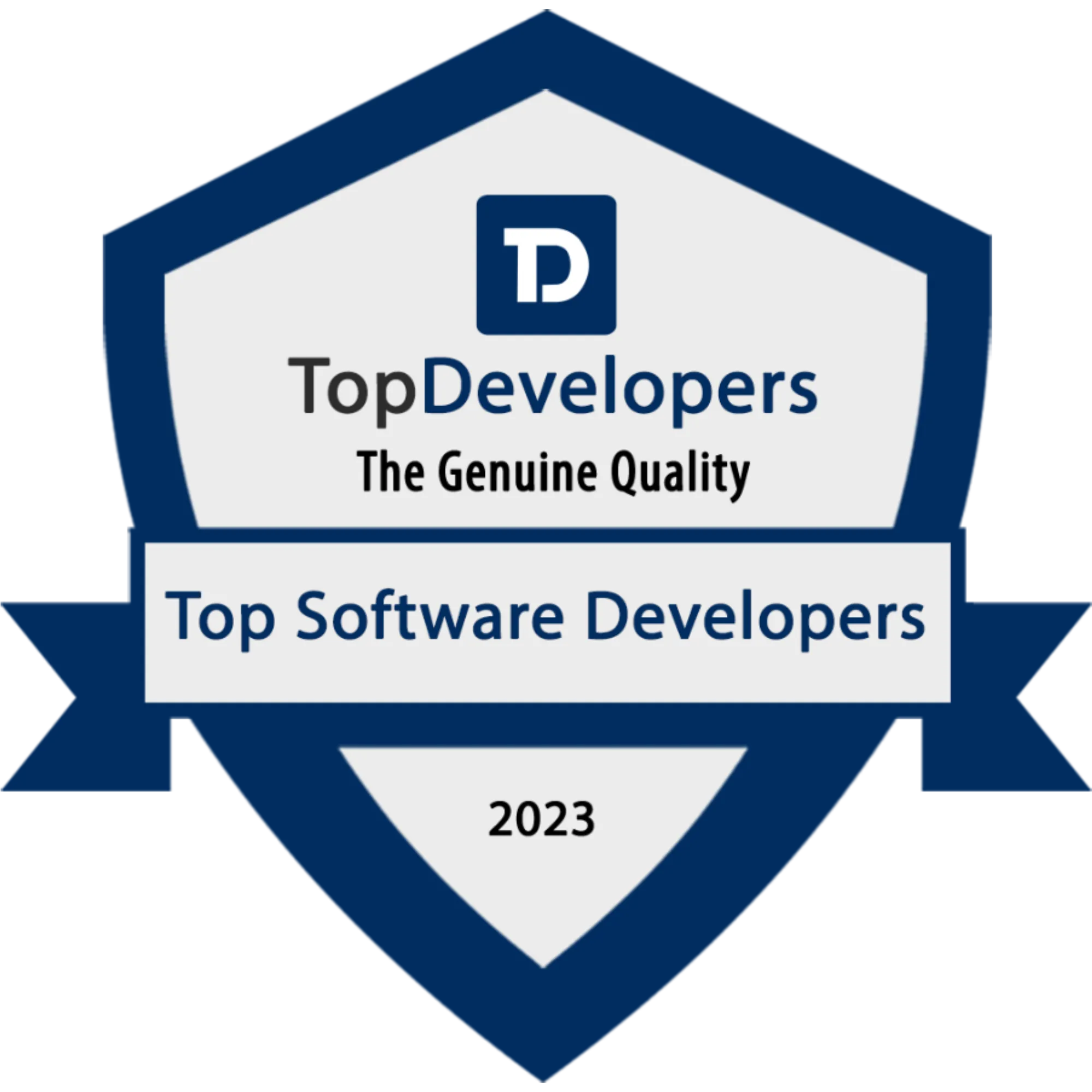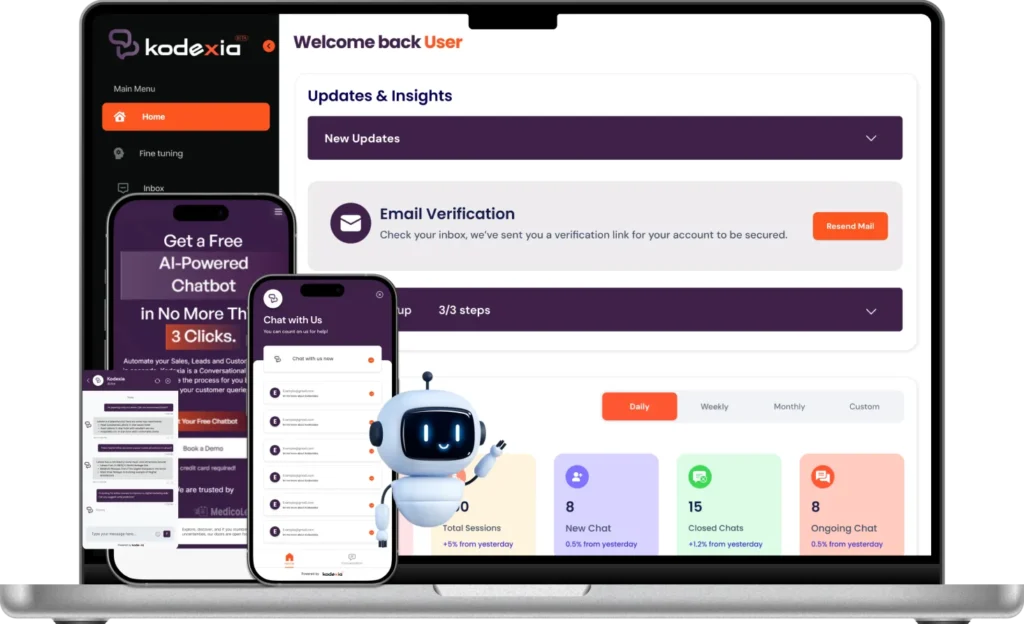AI in Telemedicine Consultation – Changing The Healthcare With Telemedicine And AI
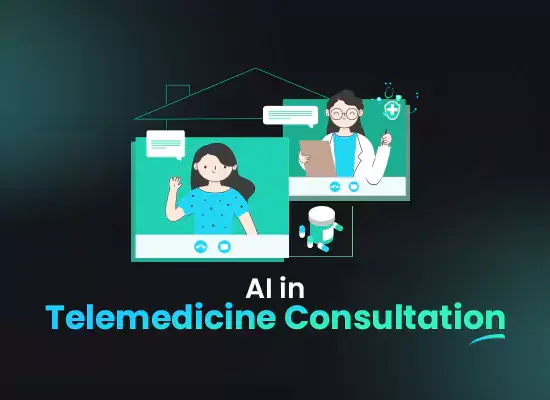
Contents
The rise of telemedicine has transformed healthcare accessibility, allowing remote consultations to bridge geographical gaps. But with Artificial Intelligence (AI) entering the equation, telemedicine consultations are poised for an even greater revolution. This integration of AI promises to enhance diagnostic accuracy, personalise treatment plans, and improve overall patient care, fundamentally changing the landscape of healthcare delivery.
What is Telemedicine Consultation?
The world of medicine is undergoing a digital revolution, and one of the most exciting advancements is the rise of telemedicine consultations. In essence, consultations in telemedicine are remote consultations between patients and healthcare providers, eliminating the need for physical visits to a doctor’s office. This innovative approach to medicinal care utilises technology to bridge the gap between patients and medical professionals, offering a convenient and accessible way to receive expert advice.
Consultation in telemedicine comes in various forms, from secure video chats that allow for real-time interaction between patient and doctor, to secure messaging platforms where patients can exchange information and receive guidance from their healthcare providers. This flexibility makes telemedicine a valuable tool for a wide range of situations. Whether you’re seeking a follow-up appointment for a chronic condition, require a medication refill, or have a minor health concern, a consultation in telemedicine can provide the necessary medicinal care without the hassle of an in-person visit.
It’s important to remember that telemedicine consultations are not meant to replace traditional in-person appointments entirely. There are still situations where a physical examination is necessary. However, for a multitude of scenarios, consultation in telemedicine offers a valuable alternative, promoting efficient use of healthcare resources and increased access to remote healthcare, especially for those in underserved communities or with limited mobility. While AI consultancy is not yet a mainstream part of consultation in telemedicine, the future holds promise for integrating AI tools to enhance the process, potentially allowing for preliminary screenings or triage before connecting with a healthcare professional.
Ultimately, telemedicine consultations are revolutionising the way we access medicinal support. By offering convenient distant consultation, telemedicine empowers patients to take a more active role in their health and wellbeing, while ensuring they have the necessary support from qualified healthcare providers.

What is the Role of AI in Telemedicine Consultation?
Telemedicine consultations, also known as remote consultations, have revolutionised the way medicinal support is delivered. By leveraging video conferencing and other digital tools, patients can connect with healthcare providers from the comfort of their homes or any location with an internet connection. This not only improves accessibility to care, especially in geographically remote areas, but also reduces wait times and makes healthcare more convenient.
However, Artificial Intelligence (AI), is rapidly transforming the landscape of consultation in telemedicine, taking distant health support to a whole new level. AI acts as a powerful consultancy tool within these consultations, assisting both patients and medical professionals in various ways.
For instance, AI-powered chatbots can play a crucial role in consultation in telemedicine by providing patients with 24/7 access to basic healthcare information and answering frequently asked questions. This empowers patients to take a more proactive role in managing their health. Additionally, AI algorithms can analyse a patient’s medical history and symptoms during a remote consultation, offering real-time suggestions and insights to the healthcare provider. This can potentially enhance the accuracy of diagnoses and treatment plans formulated during consultation in telemedicine.
Furthermore, AI development is making significant strides in remote patient monitoring. By analysing data collected from wearable devices and sensors, AI can identify trends and potential health risks. This allows for early intervention and preventive measures, ultimately improving patient outcomes.
In conclusion, AI is not meant to replace the irreplaceable human touch in medicinal care. Instead, it serves as a valuable tool to augment consultation in telemedicine, making them more efficient, informative, and effective. As AI technology continues to evolve, we can expect even more innovative applications that will further enhance the quality of remote healthcare consultations.
Benefits of Generative AI in Medicinal Care:
Generative AI, a powerful branch of artificial intelligence, is revolutionising the landscape of medicinal care. By using its ability to analyse vast amounts of data and create new information, generative AI development offers a multitude of advantages that can significantly improve patient outcomes and healthcare delivery. Let’s delve into seven key benefits that generative AI brings to the table.
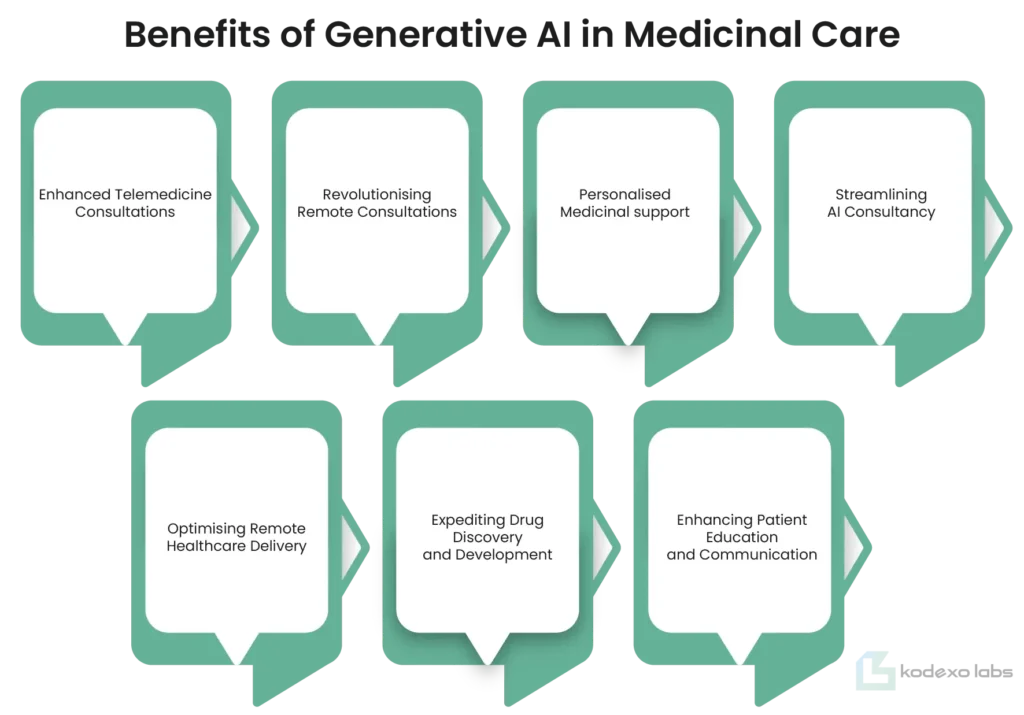
1- Enhanced Telemedicine Consultations:
Generative AI integration can significantly enhance consultation in telemedicine, a rapidly growing area of distant health support. AI-powered chatbots can efficiently manage appointment scheduling, answer basic patient inquiries, and even conduct preliminary symptom assessments. This frees up valuable time for doctors during remote consultations, allowing them to focus on more complex issues and provide more personalised care.
2- Revolutionising Remote Consultations:
Generative AI goes beyond simple appointment scheduling. AI chatbots can be trained to hold initial consultations with patients, gathering vital information about their medical history and current symptoms. This information can then be analysed by generative AI algorithms to identify potential causes and suggest relevant courses of action. This empowers doctors to enter distant consultation with a clearer understanding of the patient’s situation, leading to more efficient and effective distant health support.
3- Personalised Medicinal support:
Generative AI excels at analysing vast datasets of medical information. This allows it to identify patterns and trends that can be used to personalise medicinal support. By analysing a patient’s medical history, genetics, and lifestyle factors, generative AI can help doctors create customised treatment plans that are more likely to be successful for each individual.
4- Streamlining AI Consultancy:
Generative AI can streamline the process of AI consultancy within medicinal support. AI algorithms can analyse patient data and medical literature to suggest potential treatment options and predict potential outcomes for various courses of action. This empowers doctors to leverage the power of AI while still retaining their human expertise and judgement when making critical decisions about patient care.
5- Optimising Remote Healthcare Delivery:
The process of drug discovery and development is notoriously time-consuming and expensive. Generative AI can accelerate this process by analysing vast libraries of molecular data to identify potential drug candidates. Additionally, AI can be used to design and simulate clinical trials, further expediting the development of new medicines.
6- Enhancing Patient Education and Communication:
Generative AI can be a powerful tool for enhancing patient education and communication. AI chatbots can provide patients with clear and concise information about their conditions, treatment options, and potential side effects. Additionally, generative AI can be used to translate medical information into multiple languages, ensuring that all patients have access to the information they need in a format they understand.
By using the power of generative AI in healthcare, medicinal care has the potential to become more efficient, personalised, and effective. From streamlining distant consultation to expediting drug discovery, generative AI offers a multitude of benefits that can improve the lives of patients and healthcare professionals alike.
How can Businesses use Neural Network (NN) to benefit from Remote Consultations?
The rise of distant health support has revolutionised access to medicinal care. Consultation in telemedicine, conducted remotely via video conferencing or phone calls, have broken down geographical barriers, allowing patients to connect with specialists regardless of location. However, there’s still room for improvement in the efficiency and effectiveness of these consultations. This is where Neural Networks (NN), a powerful form of Artificial Intelligence (AI), come into play.
By incorporating NN technology into remote consultation platforms, businesses can significantly enhance the telemedicine experience. Neural networks can analyse vast amounts of medical data, including patient history, symptoms, and even vocal intonations during consultations. This allows them to provide real-time support to the consulting physician during a distant health support session. Imagine an AI consultancy whispering insights and potential diagnoses based on the conversation and patient vitals being monitored. This empowers doctors to make more informed decisions and personalise treatment plans for each patient during the remote consultation.
Furthermore, NN technology can be used to automate routine tasks during remote consultations, freeing up valuable time for doctors. Tasks like appointment scheduling, pré-consultation questionnaires, and medication reminders can all be handled by AI assistants powered by neural networks. This not only streamlines the consultation process but also allows doctors to focus on building rapport with patients and delivering quality care.
The benefits extend beyond the consultation itself. By analysing vast datasets of past consultations, neural networks can identify trends and patterns in successful distant health support interactions. This empowers businesses to optimise their telemedicine platforms, personalise patient journeys, and ultimately improve the overall quality of remote medicinal care. As NN technology continues to evolve, its potential to revolutionise distant consultation and democratise access to high-quality healthcare is truly exciting.
How to Use Machine Learning (ML) in Remote Healthcare?
The rise of remote healthcare, specifically consultation in telemedicine, has transformed the way we deliver and receive medicinal care. Machine Learning (ML) sits at the forefront of this revolution, offering a plethora of tools and applications to enhance remote consultations and empower both patients and healthcare providers. Here, we explore eight exciting ways ML is shaping the future of distant health support:

1- Advanced Diagnostics and Risk Assessments:
ML algorithms can analyse vast amounts of patient data, including medical history, vitals captured during distant consultation, and information from wearable health devices. This allows for a more comprehensive picture of a patient’s health and enables AI consultancy systems to identify potential health risks and suggest preventive measures.
2- Personalised Treatment Plans:
By analysing a patient’s unique medical data and treatment history, ML algorithms can generate personalised treatment plans during remote consultations. This data-driven approach allows healthcare providers to tailor medicinal care to each individual’s needs, potentially leading to better treatment outcomes.
3- Automated Chatbots and Virtual Assistants:
ML-powered chatbots and virtual assistants can act as the first point of contact for patients seeking remote consultations. These intelligent systems can answer basic medical questions, schedule appointments, and even triage patients based on their symptoms, ensuring they receive timely and appropriate care.
4- Mental Health Support:
Remote consultations can be particularly beneficial for mental health patients who may struggle with in-person visits. ML can analyse a patient’s voice patterns and language during a consultation in telemedicine to detect signs of depression, anxiety, or other mental health conditions. This can prompt further evaluation and support from a qualified mental health professional.
5- Chronic Disease Management:
ML algorithms can analyse patient data to predict potential flare-ups of chronic conditions. This allows healthcare providers to proactively intervene and adjust treatment plans during remote consultations, helping patients manage their conditions more effectively.
6- Medication Adherence Support:
ML-powered systems can send patients personalised reminders to take their medications, track their adherence, and even identify potential medication interactions based on the data collected during remote consultations. This can significantly improve medication adherence and overall health outcomes.
7- Real-time Language Translation:
For patients who don’t speak the same language as their healthcare provider, ML-powered language translation tools can facilitate smooth communication during remote consultations. This ensures all patients have access to quality medicinal care regardless of language barriers.
8- Fraud Detection and Improved Billing:
ML algorithms can analyse billing data to identify potential fraud and ensure accurate billing for remote consultations. This not only protects healthcare providers but also helps to maintain the sustainability of distant health support services.
These are just a few of the many ways Machine Learning development is transforming distant health support. As ML technology continues to evolve, we can expect even more innovative applications that will further improve the quality, accessibility, and affordability of medicinal care delivered remotely.
How is an AI Chatbot Beneficial For Telemedicine Consultation?
Telemedicine consultations have revolutionised healthcare access, allowing patients to connect with doctors remotely. However, AI chatbots are emerging as powerful tools to further enhance this experience. These chatbots, powered by advanced algorithms, offer a range of benefits that improve efficiency, accessibility, and even the quality of care in consultation in telemedicine.
One key advantage of AI chatbot development lies in their ability to streamline the consultation process. They can act as virtual assistants, scheduling appointments, sending reminders, and collecting basic patient information before the actual consultation. This frees up valuable time for doctors and nurses, allowing them to focus on more complex cases and provide more personalised care during the consultation itself.
AI chatbots are also valuable for patients, particularly those seeking information or guidance on non-emergency health concerns. By using chatbots, patients can get answers to frequently asked questions, receive symptom checks, and even be directed to appropriate resources for self-care or further medical attention. This not only empowers patients to take charge of their health but also reduces the burden on healthcare providers by addressing basic inquiries outside of consultations.
Furthermore, AI chatbots can play a crucial role in triage, a process of prioritising patients based on the urgency of their needs. By asking patients a series of questions about their symptoms and medical history, AI chatbots can categorise their condition and recommend the most suitable course of action, whether it’s a teleconsultation with a doctor, referral to a specialist, or simply self-care measures. This ensures that patients receive the most appropriate level of care quickly and efficiently.
How Can AI Consultancy Boost Your Telemedicine Business?
The telemedicine industry is rapidly growing, offering patients convenient and accessible healthcare. However, navigating the technical aspects and maximising its potential can be challenging. This is where AI consultancy comes in. Here’s how AI consultancy can boost your telemedicine business:
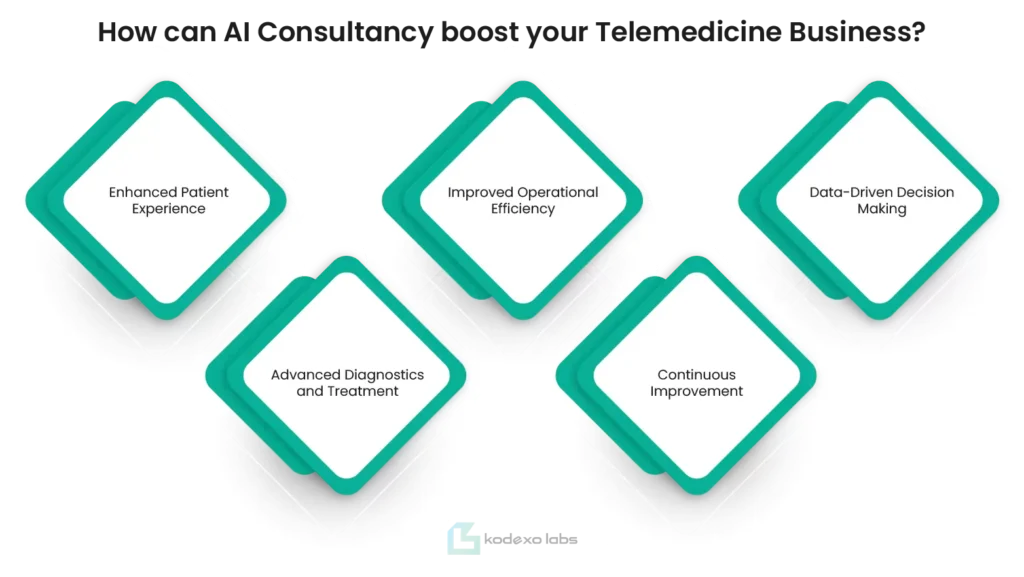
1- Enhanced Patient Experience:
AI consultants can help integrate AI-powered chatbots into your telemedicine platform. These chatbots can answer patients’ frequently asked questions, schedule appointments, and even triage basic symptoms, freeing up your staff’s time for more complex cases. Additionally, AI can personalise the patient experience by recommending relevant treatment options or educational resources based on their medical history.
2- Improved Operational Efficiency:
AI can automate many time-consuming tasks, such as appointment scheduling, data analytics, and insurance claim processing. This allows your staff to focus on delivering high-quality care to patients. AI can also analyse patient data to identify trends and patterns, which can be used to improve your overall telemedicine operations.
3- Data-Driven Decision Making:
AI consultants can help you leverage the power of data analytics to gain valuable insights into your telemedicine business. For example, you can use AI to track patient demographics, identify areas of high demand, and measure the effectiveness of your treatment plans. This data can be used to make informed decisions about expanding your services, improving marketing strategies, and optimising your overall telemedicine approach.
4- Advanced Diagnostics and Treatment:
Artificial Intelligence development and Machine Learning development can be used to develop advanced diagnostic tools that can analyse medical images and data to identify potential health problems early on. This can lead to earlier intervention and better patient outcomes. Additionally, AI can be used to personalise treatment plans by taking into account a patient’s individual medical history and genetic makeup.
5- Continuous Improvement:
AI consultants can help you stay ahead of the curve by keeping you informed about the latest advancements in AI technology and how they can be applied to telemedicine. They can also help you develop a long-term AI strategy to ensure that your telemedicine business continues to grow and thrive.
By implementing the power of AI consultancy, you can transform your telemedicine business and deliver a more efficient, effective, and personalised healthcare experience to your patients.

Why Partner With Kodexo Labs to Get Effective AI Consultancy?
The rise of telemedicine has revolutionised healthcare delivery, making it easier and more convenient for patients to access medical consultations remotely. However, integrating artificial intelligence (AI) into telemedicine consultations can further enhance the patient experience and improve healthcare outcomes. This is where partnering with Kodexo Labs for AI consultancy in telemedicine consultation comes in.
Kodexo Labs, an AI software development company can be your ideal partner for several reasons. Firstly, they possess expertise in cutting-edge AI technologies relevant to telemedicine. Their consultants can help you understand how AI can be leveraged to automate tasks such as appointment scheduling, symptom analysis, and medication recommendations. This can free up valuable time for medical professionals, allowing them to focus on providing personalised care to patients.
Secondly, Kodexo Labs understands the intricacies of the healthcare domain. Their team likely consists of specialists who not only possess technical prowess in AI but also have a strong understanding of medical regulations and ethical considerations. This ensures that the AI solutions they develop are not only effective but also compliant with relevant healthcare standards.
Finally, partnering with Kodexo Labs offers a collaborative approach. They will likely work closely with your team to understand your specific needs and develop a custom software development solution that seamlessly integrates with your existing telemedicine infrastructure. This ensures that the AI solution not only meets your technical requirements but also aligns with your overall telemedicine strategy.
In conclusion, by partnering with Kodexo Labs for AI consultancy in telemedicine consultation, you gain access to a team of experts who can help you leverage the power of AI to improve the efficiency, accuracy, and effectiveness of your telemedicine consultations. This can lead to better patient outcomes, increased patient satisfaction, and a more competitive edge in the ever-evolving healthcare landscape.


